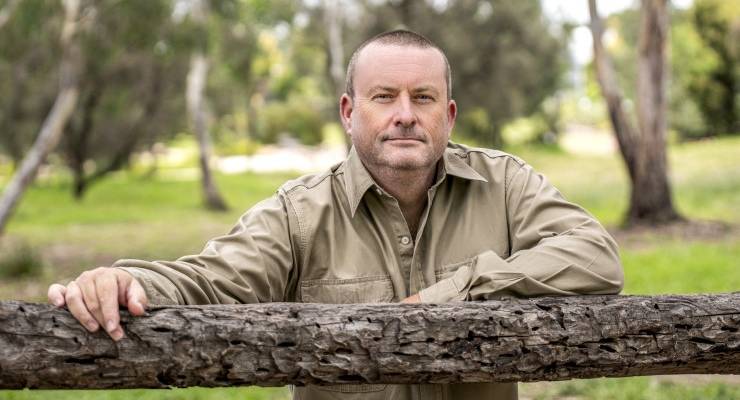
This is a sponsored extract from the book The Last Lions of Africa by Anthony Ham, available August 2020 from Allen and Unwin.
The plight of lions is also a warning signal that Africa’s wilderness areas are in trouble. Lions are our finger in the dyke, the keystone species holding it all together. Take lions out of the equation and ecosystems fall apart. Without lions, populations of other species increase unchecked, habitats are destroyed, and there is no barrier to humankind’s final destruction and desperate takeover of barely habitable land.
The disappearance of lions is the beginning of the end for Africa’s last wild places, the final step in the irreversible decline and death of so much African wilderness. Lions, and possibly only lions, may be the saviours of Africa as we know it.
These three enduring African characters — lions, the traditional peoples they live among, and the wild lands of Africa that together they inhabit –are what this book is about. And for every glimmer of hope that these stories offer, there is always a hint of elegy, a lament for all that has been lost or may soon be gone.
The first time I saw wild lions I felt as if I had snatched a glimpse of eternity. These lions, truly wild, stalked the earth as if this were their time, as if the world could forever be like this.
There is nothing quite like a wild lion to evoke that shudder of fear, that frisson of excitement that animates the world’s last wild places.
Enduring symbol of kings, possessed of terrible heraldic beauty, lions inhabit the darkest recesses of our psyche, like the fearsome monsters who once stood in for terrifying mysteries and our longing for exploration on maps of the ancient world.
In the leonine profile, savage and elusive, there resides a deliciously untamed life force that inspires the same awe that we reserve for the great mountain ranges of the earth, for ocean storms, and for epic sand-dune seas. This is what drew me to lions.
The stories in this book follow characters: lions with real names like Cecil, Nosieki and Lady Liuwa; people like Meiteranga the Maasai warrior and Induna Mundandwe the Barotse chief.
It’s what happened when a Maasai warrior in Kenya killed a lion only to find himself faced with an existential crisis that threatened everything he and his people stood for.
It’s what really happened to Cecil, who showed us that even lions deep within national parks may not be safe.
One story chronicles the life of Lady Liuwa, the last lioness of western Zambia who became a goddess to the local people,mand whose story is a reminder that when lions disappear from a land, it can be terribly difficult to bring them back.
Another traces a solo crossing of the Kalahari in Botswana, searching for the last survivors in a land emptied of people and of lions.
Stories from south-eastern Tanzania chart a world under the spell of Africa’s most prolific man-eating lions, cautioning us as to what happens when things fall apart.
And I tell of my own near-death experience with a lion in the African dawn.
Time is running out for lions. An oft-recounted Nairobi legend, no longer verifiable, holds that the first six people to be buried in Nairobi’s cemetery were killed by lions. Back then, in the final days of the nineteenth century, Africa belonged to the lions.
Little more than a century later, in June 2012, six lions stepped beyond the boundaries of Nairobi National Park and into Kitengela, where a group of angry local Maasai cornered them, eager to exact revenge for the loss of their livestock to predators.
Or perhaps they were angry because the intrusion of lions into the human world was an outrage, a threat that could not go unanswered. And who could blame them?
Facing lions on suburban streets should not be one of the more routine challenges of daily life. “Some people think having lions in the neighbourhood is the best thing ever,” one Nairobi resident told London’s Times newspaper. “But I don’t want them to eat my kids.”
The mob speared the six lions to death before help could arrive. A certain symmetry to these Nairobi tales of death—a story of six lions, the other a story of the first six people to be buried in the city’s cemetery, all killed by lions.
Such has been the relationship between lions and people in Africa for the past hundred years. The balance has shifted. The lions no longer win.

The Last Lions of Africa is published by Allen and Unwin. Recommended retail price is $32.99. More information here.







Africa and Australia both, different indicator specie but same outcomes.
Within historical time lions roamed as far north as latitude 40.
It brings to mind a comment David Suzuki made in the 80s when showing his child books about wild animals “the constant question was ‘are there are left now?'”
That was then, this is now. The future?
..”Are there any left now?”
Lions in Africa, tigers in India: the one thing the world will never run out of is man. Nature loathes a vaccum, it doesn’t care what species it is, as long as it’s life. The thought of an endless supply of humans, in a world devoid of animal life is infinitely depressing.
I expect lions and many other species will linger on a few small protected niches long after their death warrant is signed by genetic erosion.